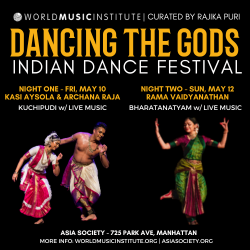Testimony to Committee on Finance
Monday, May 31, 2021
Testimony to Committee on Finance
On behalf of Dance/NYC (www.dance.nyc), a service organization that serves over 5,000 individual dance artists, 1,200 dance-making entities, and 500 non-profit dance companies and the many for-profit dance businesses based in the metropolitan New York City area, including BIPOC (Black, Indigenous, and Peoples of Color) dance workers, immigrants, and disabled dance workers, Dance/NYC joins colleague advocates working across creative disciplines in thanking the Committee for your leadership during this time and in requesting:
- The City implements the Cultural Plan for Recover (CPR), which equitably invests 70 million dollars in the arts and cultural sector to best reach those people, programs, and organizations who need support and can lead the sector forward;
- The City to establish an artist registry to be used as a mechanism to communicate with, collect data from, and support art workers going forward;
- The City to revise and extend the NYC Artists Corps to create ongoing workforce support for art workers;
- The Committee include the Arts and Culture communities in their economic support and relief plans and pass legislation to protect our organizations and workers;
- The Committee acknowledge the ongoing lasting impacts of slavery, establish and execute a plan to address those impacts, and repair the harm done by immediately establishing a Commission for Reparations for past and continuing harms inflicted upon Black and Indigenous people -- from colonialism to slavery through food and housing redlining, mass incarceration, and surveillance.
- To establish funding to ensure BIPOC, immigrant, disability, and LGBTQ+ organizations and artists can own and/or properly maintain their venues, buildings and/or land recognizing land stewardship and ownership as one of the most significant ways to address systemic inequitable distribution of resources;
Arts and culture make up 7.5% of the NY State GDP, or $123.2 billion, representing 504,393 jobs with a loss of $26.8 billion in revenue due to the COVID-19 pandemic. Yet, the NY State budget did not mention arts and culture. The average arts attendee spends approximately $31.47 beyond ticket costs on meals, retail, parking, lodging, local transportation, childcare, and souvenirs. These dollars provide vital income to small businesses such as local merchants, energize arts districts, foster a healthy residential real estate market, and pay salaries and wages in non-arts sectors. According to Brookings’ Lost art: Measuring COVID-19's devastating impact on America's creative economy (https://www.brookings.edu/research/lost-art-measuring-covid-19s-devastating-impact-on-americas-creative-economy/), 58% of all creative workers in NY became unemployed (279,787 people) as of July 2020. Dance/NYC and its constituents believe that concrete action must be taken to support the arts and culture sector in recovery, as well as investing in the people, programs, and organizations that can lead the sector forward. Arts and culture drive the economy and can drive economic recovery forward.
Dance/NYC has been conducting comprehensive research on the impact of the coronavirus on the dance sector. In our recently published Coronavirus Dance Impact Informational Brief (https://bit.ly/DNYC_COVID_DanceImpactBrief) Dance/NYC found that 21% of African, Latina/o/x, Asian, Arab, and Native American (ALAANA) dance workers were unable to pay rent/mortgage as compared to 15% of White (non-Hispanic) dance workers. 65% of disabled dance workers have not been able to access all of the medical and mental health resources they need as compared to 41% of non-disabled dance workers. 32% of immigrant dance workers need medical health care coverage as compared to 15% of those born in the US. In addition to these inequities, Dance/NYC has documented a mass exodus of the workforce out of the City with 5% of respondents permanently relocating outside of the City and an additional 17% considering relocation. Moreover, 43% of the respondents are considering long term career options outside of the field. Nearly half (47%) of the organizations surveyed are not certain that their organizations will be able to survive the pandemic and may be faced with closure. These data points highlight the ever-present inequities in the sector and that more work is needed to protect all dance workers to make sure they continue to thrive in our great City. Additionally it revealed that total revenue loss for dance organizations and groups exceeds $22M, including $16.5M in earned revenue and $5.5M in contributed revenue. Dance/NYC has already provided over $1 million in relief support to individual freelance dance workers and organizations through our Coronavirus Dance Relief Fund (www.dance.nyc/COVID-19/Relief-Fund/Overview), but this only alleviates the short-term needs; comprehensive access to capital legislation is desperately needed to ensure long term survival of the arts and culture sector.
The Comptroller’s Report on the Creative Economy highlighted the vastness of the cultural sector with nearly 400,000 jobs. SMU DataArts and Department of Cultural Affairs’ COVID-19 Impact on Nonprofit Arts and Culture in New York City report recently estimated an aggregate -$6.8 billion net effect of the COVID-19 crisis on the nonprofit arts and culture sector equates to a deficit equivalent to 26% of expenses for the average organization, over the course of a year. As found in Dance/NYC’s Defining “Small-Budget” Dance Makers in a Changing Dance Ecology Report (https://www.dance.nyc/programs/research/2020/10/Defining-Small-Budget-Dance-Makers-in-a-Changing-Dance-Ecology/), “Small-Budget” dance makes up the lion’s share of the New York City dance sector. According to SMU Data Arts and the Department of Cultural Affairs’ COVID-19 Impact on Nonprofit Arts and Culture in New York City report some of the greatest reductions to artist employment have come from Arts Education organizations, which collectively reported decreases of over 2,100 artists, or 78% of artist staffing, during this period. Small family run dance studios are key pipelines for the dance sector in addition to the department of education, professional programs, and Broadway and are facing closure. The exodus of the dance workforce and the permanent closures of organizations and groups poses a direct and pervasive threat to the survival of the arts and culture communities across the City— a loss we simply cannot afford.
The arts are necessary for community building and mental health, both of which are largely at risk due to social distancing measures. According to SMU Data Arts and DCLA, community-based arts organizations (especially those that focus on cultural and ethnic awareness, folk arts, and community celebrations) in the City have reported losses of 12%, unanticipated expenses of 12%, and have the lowest level of Working Capital relative to expenses at 1.6 months heading into the crisis. A lack of access to dance due to the COVID-19 pandemic has negatively impacted individuals and communities across New York City. Students and children have been unable to go to dance studios and senior centers have lost in-person programming with dance organizations. Virtual dance has stepped up to fill the gaps but for a fraction of the revenue. Lack of relief funding has left dance makers and artists more vulnerable than ever. While the Payment Protection Program (PPP), EIDL and other government loans were provided at the start of the pandemic, this money has quickly run out. In Dance/NYC’s Coronavirus Dance Impact Survey, one organization shared, “We're deeply concerned with the health crisis (physical and mental), loss of jobs and food security for people living in our community who were already vulnerable before COVID-19. Our programs have always served as a place of solace as the arts offer spaces for people to heal and seek solutions. It is important that we exist to help people weather the crisis psychologically and compliment organizations who are offering social services for displacement, health care, and food.”
Defunding the police and funding social services, passing housing and healthcare reform, and ensuring Black and POC- led organizations continue to thrive are all important for the survival of artists, arts workers, the cultural life of NYC and are steps towards the envisioning of what anti-racist systemic reform could look like. White supremacy continuously manifests itself in violence at the hands of law enforcement and in interpersonal interactions, our government’s response to COVID-19, and our cultural institutions. A step towards reparations is defunding the police by $1 billion and funding equitable opportunities aimed at creating accountability and dismantling white supremacy in arts and culture and amplifying the voices and autonomy of the Black, Indigenous and People of Color (BIPOC) community. There is no going back to life pre-COVID. We all hold a responsibility to dismantle white supremacy in all the ways it manifests at our cultural institutions, policies, funding, and interpersonal interactions and envisioning justice. We are in a crisis and need continued support now.
For Dance/NYC and its constituents, the most urgent priorities are:
The City implements the Cultural Plan for Recover (CPR), which equitably invests 70 million dollars in the arts and cultural sector to best reach those people, programs, and organizations who need support and can lead the sector forward;
- The City to establish an artist registry to be used as a mechanism to communicate with, collect data from, and support art workers going forward;
- The City to revise and extend the NYC Artists Corps to create ongoing workforce support for art workers;
- The Committee include the Arts and Culture communities in their economic support and relief plans and pass legislation to protect our organizations and workers;
- The Committee acknowledge the ongoing lasting impacts of slavery, establish and execute a plan to address those impacts, and repair the harm done by immediately establishing a Commission for Reparations for past and continuing harms inflicted upon Black and Indigenous people -- from colonialism to slavery through food and housing redlining, mass incarceration, and surveillance; and
- To establish funding to ensure BIPOC, immigrant, disability, and LGBTQ+ organizations and artists can own and/or properly maintain their venues, buildings and/or land recognizing land stewardship and ownership as one of the most significant ways to address systemic inequitable distribution of resources.
We commend New York City’s ongoing efforts to slow the spread of COVID-19, while safely reopening the City. Dance/NYC strongly advocates for a vision rooted in inclusivity, equity, and sustainability for the arts and culture industry. Artists are necessary workers and need to be treated as dignified labor in order to continue to be a driving part of the NYC workforce and help arts and culture to lead recovery efforts. Funding is desperately needed in order to not lose our most vulnerable organizations and workers and to ensure they continue to thrive here. The time to act is now.




